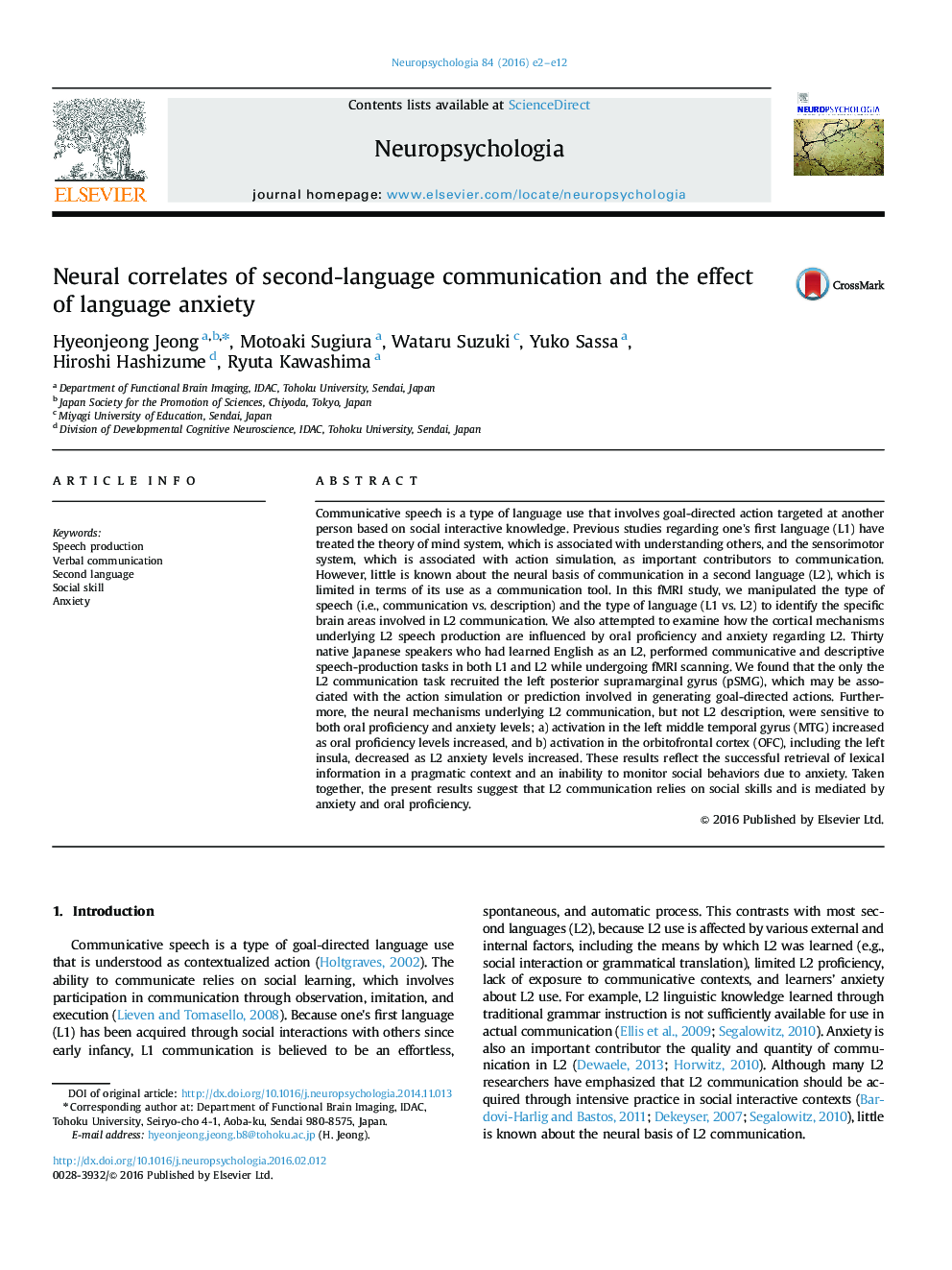| کد مقاله | کد نشریه | سال انتشار | مقاله انگلیسی | نسخه تمام متن |
|---|---|---|---|---|
| 7319370 | 1475570 | 2016 | 11 صفحه PDF | دانلود رایگان |
عنوان انگلیسی مقاله ISI
Neural correlates of second-language communication and the effect of language anxiety
ترجمه فارسی عنوان
ارتباط عصبی ارتباطات زبان دوم و اثر اضطراب زبان
دانلود مقاله + سفارش ترجمه
دانلود مقاله ISI انگلیسی
رایگان برای ایرانیان
کلمات کلیدی
تولید سخنرانی، ارتباط کلامی، زبان دوم، مهارت اجتماعی، اضطراب،
موضوعات مرتبط
علوم زیستی و بیوفناوری
علم عصب شناسی
علوم اعصاب رفتاری
چکیده انگلیسی
Communicative speech is a type of language use that involves goal-directed action targeted at another person based on social interactive knowledge. Previous studies regarding one's first language (L1) have treated the theory of mind system, which is associated with understanding others, and the sensorimotor system, which is associated with action simulation, as important contributors to communication. However, little is known about the neural basis of communication in a second language (L2), which is limited in terms of its use as a communication tool. In this fMRI study, we manipulated the type of speech (i.e., communication vs. description) and the type of language (L1 vs. L2) to identify the specific brain areas involved in L2 communication. We also attempted to examine how the cortical mechanisms underlying L2 speech production are influenced by oral proficiency and anxiety regarding L2. Thirty native Japanese speakers who had learned English as an L2, performed communicative and descriptive speech-production tasks in both L1 and L2 while undergoing fMRI scanning. We found that the only the L2 communication task recruited the left posterior supramarginal gyrus (pSMG), which may be associated with the action simulation or prediction involved in generating goal-directed actions. Furthermore, the neural mechanisms underlying L2 communication, but not L2 description, were sensitive to both oral proficiency and anxiety levels; a) activation in the left middle temporal gyrus (MTG) increased as oral proficiency levels increased, and b) activation in the orbitofrontal cortex (OFC), including the left insula, decreased as L2 anxiety levels increased. These results reflect the successful retrieval of lexical information in a pragmatic context and an inability to monitor social behaviors due to anxiety. Taken together, the present results suggest that L2 communication relies on social skills and is mediated by anxiety and oral proficiency.
ناشر
Database: Elsevier - ScienceDirect (ساینس دایرکت)
Journal: Neuropsychologia - Volume 84, April 2016, Pages e2-e12
Journal: Neuropsychologia - Volume 84, April 2016, Pages e2-e12
نویسندگان
Hyeonjeong Jeong, Motoaki Sugiura, Wataru Suzuki, Yuko Sassa, Hiroshi Hashizume, Ryuta Kawashima,
